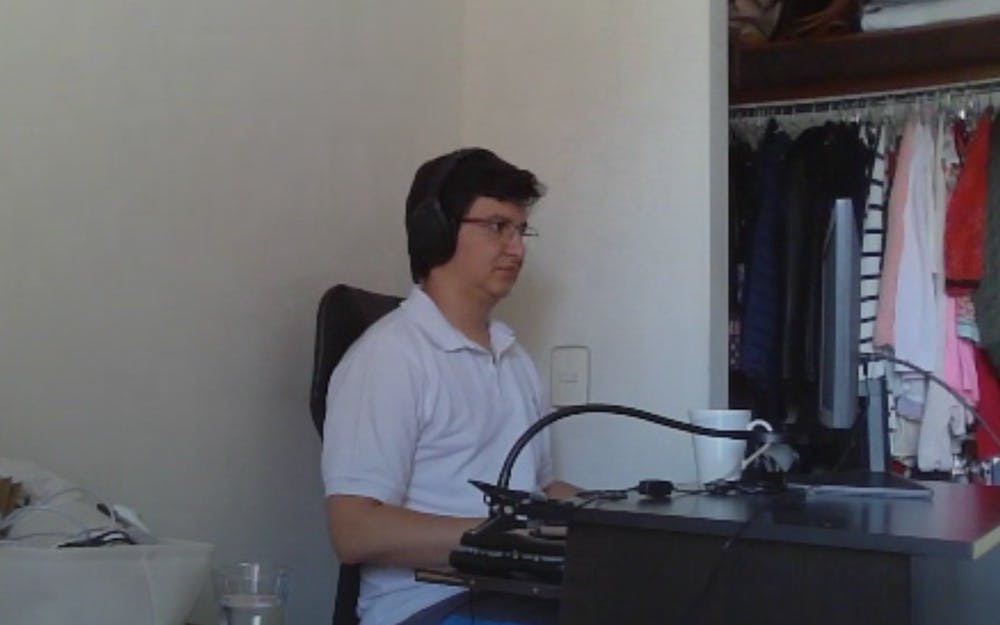An international doctoral candidate in the anthropology department, who requested anonymity due to concerns about employment and immigration, said she knows at least six other graduate students abroad in a similar situation. She initially planned to conduct field research in South America for the year, but when the University shut down in March, she returned to her home country in Europe.
Having an appointment as a TA or another similar position is crucial for ensuring international graduate students are eligible for tuition remission and in-state tuition, the anthropology student said.
Departments, and not individual students, can seek exceptions to the fall 2020 policy, according to the Graduate School's website.
“Grounds for exception might include such factors as heavy cost to a program from losing international TAs/RAs, or very low risk of export control concerns in a given discipline,” the website states.
According to the website, with the exception process, the University may need to hire a tax adviser to examine the “risks” to UNC or the student’s department, as well as a third party Professional Employment Organization to manage student employment. These roles could cost the department several thousand dollars for even one exception request.
“The money that TAs make is probably laughable for people at the South Building, TAs are so underpaid,” the anthropology student said. “It just seemed like the process was made so impossible that no department would be able to employ their TAs remotely, because the cost was just so high.”
Dean of the College of Arts & Sciences Terry Rhodes informed faculty members of the new policy on July 21. In an email obtained by The Daily Tar Heel, Rhodes cautioned against requesting the exception.
“Although the communication below outlines a procedure for requesting an exception, please note that the costs to do so are prohibitive, and I am asking that departments not pursue this path during a time of expected budgetary constraints,” Rhodes wrote.
Department concerns
Patricia A. McAnany, chairperson of the anthropology department, said her department does not have a large endowment, and determined that it was infeasible to support students outside of the country with a TA position.
Though all of the international graduate students abroad in her department were able to secure awards or a tuition waiver to cover costs for this semester, she said she’s concerned about how the spring will look.
“None of (the students) know whether they can get their visas processed in time to get back yet,” she said. “So we're all just on tenterhooks waiting, and hoping that the consulates and embassies abroad will process their student visas in time for them to get back for the spring semester because we have no way of supporting them.”
To get the day's news and headlines in your inbox each morning, sign up for our email newsletters.
McAnany said though the University has constrained the ability of departments to support their international graduate students for legal and financial purposes, she doesn’t believe that the University was acting with malice in implementing the policy.
In an email statement, UNC Media Relations said over the past few months, the unprecedented suspension of visa services indicated that many graduate students wouldn’t be able to get visas in time for the start of the semester.
“International graduate students support the University community in a variety of ways, from the courses they teach to the research they do, to the other ways they serve our University community,” said Dean of the Graduate School Suzanne Barbour in a statement via Media Relations. “On top of all that, they enrich our community in innumerable ways by bringing their unique lived experiences, cultures and ideas."
A lack of institutional support
The anthropology student said when UNC admits an international student to one of its graduate programs, she believes the University has a duty to support them for both financial and legal purposes. But she said she feels a dissonance between University statements and actions that were taken in the past few months.
“International students at UNC seem to just be, we're a diversity statement and we bring in a lot of money, or we make the image look better,” she said. “But when it comes for them actually to stick up for us, there's radio silence.”
An international student in the College of Arts & Sciences, who wished to remain anonymous due to employment concerns, also had her graduate teaching fellow contract terminated because she was abroad due to the new policy. She said though she was eventually able to secure an award to cover expenses for the semester, at one point she considered going to another university.
“I did not expect not to have a life for four years, like really pouring your heart and soul into this,” she said. “And then this sort of being what you get? Like this is how people treat you, how you're valued for the work that you've done?”
Once her contract was terminated, she said she also felt as though the University left it up to students to figure out what that entails.
“I understand being international, I'm not expecting everyone to be an expert of what that means, but if you are having those students in your department, you should be able to do that work and be knowledgeable,” she said.
Salazar-Saenz, who is spending this semester working on his dissertation, said his current plan is to request a visa later this year, and hopefully return in January to finish his doctoral degree — but that will all be dependent on further potential outbreaks.
He said he often considers the first decision he made five-and-a-half years ago to attend UNC. In a way, he regrets saying yes, because he feels as though the institution wasn’t there in the moment of most vulnerability.
“I think the heartbreaking part of this is that essentially this community wasn’t there when I most needed it,” he said.
@MaydhaDevarajan
university@dailytarheel.com



